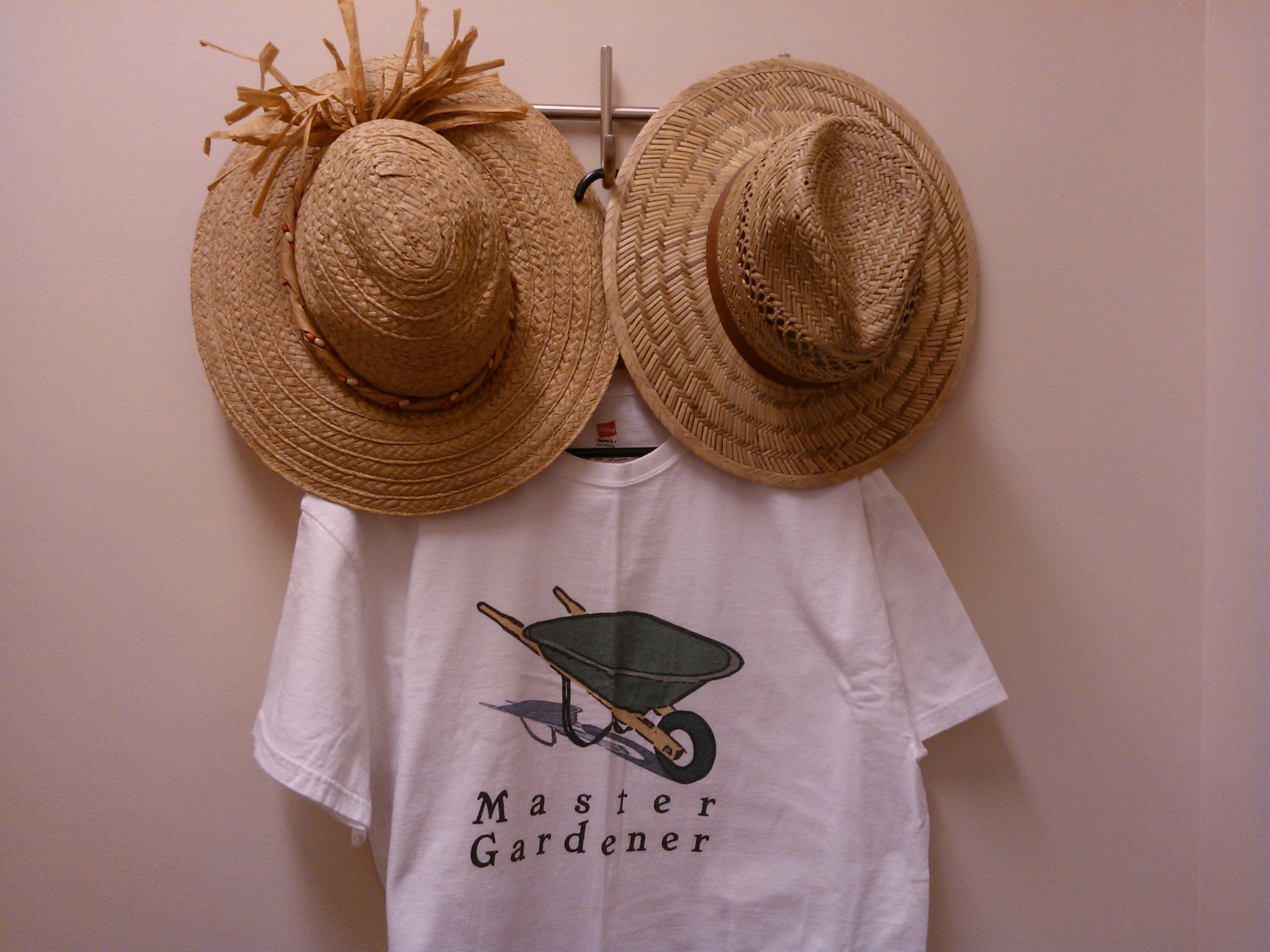Not so long ago, I stood by my father’s side witnessing the ever-advancing damage of dementia. I knew deep inside that our time together was growing short from a cognitive perspective, but I never once took into consideration that he, himself, would be taken so quickly. Dad was a Master Gardener who dedicated his life to understanding the soil, composting, plant diseases and cures, etc.
Dad volunteered 20,000 hours of his senior years teaching children in elementary, middle, and high schools how to nurture and grow vegetables, how to be more self-sufficient, how to be responsible, how to be part of something bigger than yourself. He also went into prisons, as he wanted to give them a sense of hope and accomplishment. Dad was sent a gold lapel pin award from President Bush, honoring his 20,000 hours of volunteering, and he was so proud of that pin.
When dad and I were in the garden together, he used to say there was no therapy better than sticking your hands in the earth and being a part of nurturing a plant to maturity, taking a back seat to mother nature, of course. Little did I know, I would inherit his love for gardening and his green thumb as well.
There are many life lessons to be learned from gardening. Below are several listed from Adam McCane’s site, which I really like; I just tweaked them a bit for purposes of this blog.
- What you water grows. This simply means that we need to pay attention to ensure we are watered throughout life. It is the most basic need we have, for without it, we would perish. So will our plants that feed us, if we don’t take care of them or the earth.
- Weed regularly. Weeds are deceptive. You won’t notice them starting, but before you know it, they are choking out your veggies, stealing water and nutrients from your plants, and reproducing. The rule in the garden is simple: If you see a weed, pick it! The same is true for life. Weeds and other “undesirables” have a way of creeping in on us. We need to be mindful that we do not need any weeds in our lives, literally or figuratively. Get rid of them and don’t feel bad about it. All of us are tired of dealing with the weeds!
- Sharing the harvest. It’s all about abundance, whether you are sharing veggies, flowers, time, care, love, etc. Share what you have an abundance of and pay it forward. It always finds its way back.
- Plant in the right season. For everything, there is a time and purpose. Sometimes, it is beyond our understanding. I believe we reap what we sow. Maybe it’s time to plant better, more productive things in our lives. Feed your spirit by allowing only good things into your life now. If you see things rotting, infested, etc., you will need to tend to them by getting rid of them, or proactively healing them. TIme and nature will tell you which one it will be.
- Space is required for growth. It’s hard to imagine how much room a vegetable is going to need when you grow it from seed or buy a seedling that is in a 5-inch pot. Sometimes they grow so fast and thick, they can choke out other plants. Giving a plant plenty of space is important for the health of the plant, so it receives plenty of sunshine and nutrients. Providing this space will ensure our plants will be healthy, productive, and have plenty of breathable space. We need to do this for ourselves and give that gift to others too.
- Pruning is necessary for abundance. Cutting, pinching, or picking off dead leaves, branches, poor or weak fruit is necessary for the growth of the healthy fruit. Vineyard pruners do this every day. They know exactly how to cut the vine to promote healthy grapes. While it may look harsh to see so much being removed, it gives the healthy portions of the plant more nutrients to produce the best fruit. Sometimes, we need to look at ourselves the same way and learn how to prune ourselves by letting go of things that no longer serve our well-being and our highest good.
 Dad’s old garden hat is still hanging next to mine on a hook in my laundry room. Every time I head out to the garden, Dad accompanies me in spirit. I kept his watering can, his old worn leather gloves, his t-shirts. Those things were my father and how I remember him best. I can still hear his voice guiding me in the stillness of my own vegetable patch. Much of his advice to me through life also applies to the lessons of raising a successful garden, whatever “garden” we may be cultivating at any given time.
Dad’s old garden hat is still hanging next to mine on a hook in my laundry room. Every time I head out to the garden, Dad accompanies me in spirit. I kept his watering can, his old worn leather gloves, his t-shirts. Those things were my father and how I remember him best. I can still hear his voice guiding me in the stillness of my own vegetable patch. Much of his advice to me through life also applies to the lessons of raising a successful garden, whatever “garden” we may be cultivating at any given time.
©2014 The Estate Lady®
Julie Hall, The Estate Lady®, is the foremost national expert on personal property in estates, including liquidating, advising, and appraising. http://www.TheEstateLady.com She is also the Director of American Society of Estate Liquidators®, the national educational and resource organization for estate liquidation. http://www.aselonline.com.
No part of The Estate Lady® blogs, whole or partial, may be used without Julie Hall’s written consent. Email her at Julie@TheEstateLady.com


